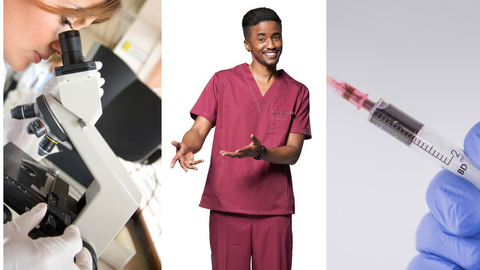By Josephine Reid
What do forensic pathologists do?
Forensic pathologists, or medical examiners, are specially trained physicians who examine the bodies of people who died suddenly, unexpectedly or violently.
The forensic pathologist is responsible for determining the cause (the ultimate and immediate reasons for death) and manner of death (homicide, suicide, accidental, natural or unknown). To determine the identity of the victim, time, manner and cause of death, the forensic pathologist: studies the medical history, evaluates crime scene evidence including witness statements, performs an autopsy to uncover evidence of injury or disease, collects medical and trace evidence from the body for further analysis.
In addition to anatomy, the forensic pathologist may draw upon specialized knowledge and training in Toxicology, Firearms/ballistics, Trace evidence, Serology (blood analysis) and DNA technology.
They also ensure procedures regarding evidence collection are followed with precision and coordinate their work with law enforcement operations. A city, county or state may appoint a forensic pathologist to act as a medical examiner.
Forensic pathologists often work long, irregular hours with multiple interruptions from phone calls and other inquiries.
From an intellectual standpoint, the most challenging parts of having a career such as this are figuring out why someone died when there is very little information, like when the autopsy doesn't yield an answer right away or when there is too much information and none of it makes sense. From an emotional standpoint, helping grieving relatives understand what happened to their loved one can sometimes be extremely difficult.
The most rewarding aspect of the job is figuring out an individual cause of death in which doing so can bring closure to a grieving family. There's also tremendous pride in being given the responsibility of testifying truthfully and effectively in court by explaining fatal circumstances to a jury allows those twelve people to effectively perform their civic duty is rewarding for a professional in this part of the medical field.
In Their Own Words:
“On most days, I wake up around 6 a.m. and get into work at the coroner's office around 8:30. I meet with my colleagues and we review the reports we have from the deputy coroner's investigators. Each report describes the death scene of an individual whose body was brought into the office sometime during the previous 24 hours. The information about the death is crucial for us in deciding whether we need to perform an autopsy or whether we can certify the cause and manner of death based on a medical record review alone. We perform autopsies in the morgue from around 9 a.m. to noon and then do paperwork in the afternoon. About once or twice a month, in most offices, a forensic pathologist may get called to go out to a death scene to work with police investigators in understanding what happened to the decedent, and in determining whether the case may be a homicide. My typical work week is split up between three days performing autopsies at our morgue in the coroner's office and private practice consulting work the rest of the time. Some weeks I work a full schedule of 40 hours and other weeks I work less, about 20 hours, depending on the workload and deadlines. I seldom work more than 40 hours a week.” -- Dr. Melinek explains at wire.ama-assn.org
What's difficult about being a forensic pathologist?
Emotional hazards of forensic pathology careers include viewing and handling corpses disfigured by crimes, suicide, accidents, injuries and illnesses; meetings with grieving and potentially unstable families and friends of deceased persons; exposure to violence; court confrontations while appearing as witnesses; and appearing in sensational media coverage.
Forensic pathologists also face physical hazards, including possible exposure to infections and diseases from corpse tissues; potential inhalation and skin contact with hazardous chemicals used to preserve body parts and to disinfect autopsy equipment; and occasional exposure to radiation through using X-rays of bodies to locate items such as bone fractures, or even embedded bullets.
You will need the emotional and physical strength to handle exposure to the effects of crime, long work hours, and possible exposure to illness and infection if you are interested in pursuing a forensic pathologist job.
While forensic pathologists take precautions such as wearing surgical masks, respirators, lab coats, surgical gloves, shoe coverings, plastic aprons, arm protectors, hair coverings and goggles, there will always be potential health risks.
How do you become a forensic pathologist?
Future forensic pathologists must complete four years of undergraduate school, four years of medical school, three to four years of training in pathology, a one-year internship at a medical examiner's or coroner's office, and pass an American Board of Pathology certification examination.
Those interested in becoming forensic pathologists must weigh the interesting work and the number of potential job openings due to the shortage of forensic pathologists against the lower earnings of forensic pathologists, as compared to their hospital-based peers, and the emotional and physical hazards of the job.
How much do forensic pathologists earn?
A 2009 National Academy of Sciences reports estimated that forensic pathologists earn between $150,000 to $180,000 per year. This range is much lower than the salaries paid to their hospital-based peers, who often earn between $200,000 to $250,000 per year, according to a 2013 survey by the American Society for Clinical Pathology.

